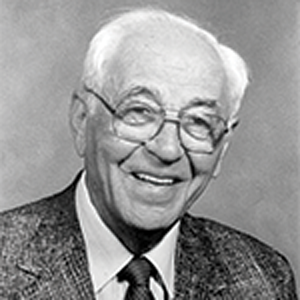 El Paso Holocaust Museum Founder
El Paso Holocaust Museum Founder
Henry Kellen (Henriek Kacenelenbogen) was born in Lodz, Poland on July 5, 1915. After graduating high school, Henry furthered his education at a university in France. In 1937, he graduated with a degree in textile engineering and moved to Lithuania where his family was. He thought that he would spend his life in the profession and become a part of a modern and productive society. In 1941, the German army invaded Lithuania, and the Nazis destroyed his dreams. Henry’s father was arrested and killed. Henry and the rest of his family, along with the entire Jewish population of 30,000 in the city of Kaunas (Kovno), were forced to move into the ghetto. During an “Intelligentsia Aktion” (a roundup of educated young men), Henry’s brother Moniek was killed along with hundreds of others.
While in the Kovno ghetto, Henry worked as a laborer. He married Julia Filipovsky on December 7, 1942. After witnessing a “Kinder Aktion,” in which children were rounded up from the ghetto and executed at the Ninth Fort, Henry and Julia made the decision to escape with their eight-year-old nephew, Jerry. The three of them miraculously survived due to the courage of a Christian Lithuanian farmer, Andrius Urbonas, and his wife, Marija. Henry, Julia, and Jerry were hidden by the Urbonas family in an earthen hole under the floor of his barn, along with five other Jews for three months. For their courage, Andrius and Marija Urbonas were recognized as Righteous Among the Nations by Yad Vashem in 1998. Henry’s mother, Helena, and his sister, Sonia, died in Stutthof concentration camp.
Henry, Julia, and Jerry were liberated in 1944 by the Soviet Army. Thanks to the authorization of President Harry S. Truman, they arrived in the United States in 1946 to begin a new life. Henry became a successful business owner of a men’s clothing store. For many years, Henry remained silent with his painful memories, but after retiring in 1984, he felt an obligation to preserve the memories of the millions of innocent people who were victims of the Nazi brutality. This led Henry to found El Paso Holocaust Museum and Study Center in 1984.
Over the next several decades, Henry spoke to thousands of students, teachers, military personnel, and community members about the Holocaust. Henry died on July 3, 2014, two days before his 99th birthday.
Connecting Stories: Jerry Kellen, Julia Kellen